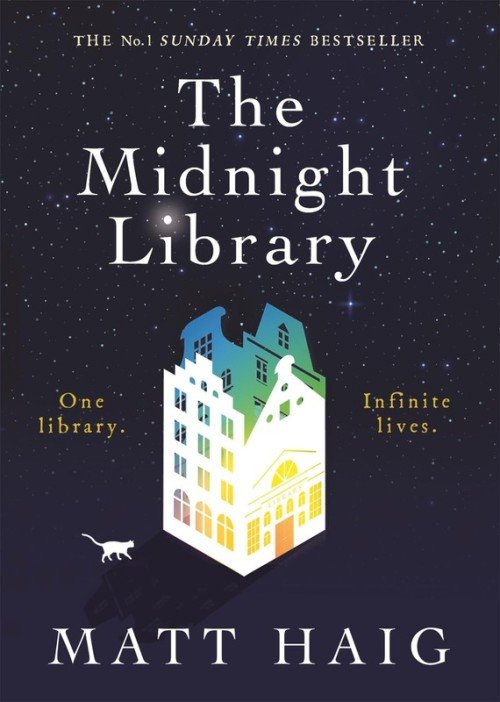
Nora Seed feels useless. Her cat is dead, her brother doesn’t seem to be interested in her, and she has been fired: nobody needs her. Late one evening, she tries to kill herself.
But instead of death, what Nora finds is a library in which each volume represents a version of her life where she made different choices. The possibilities are numberless. There is a Nora who became a rock star, another who has won Olympic medals, another living aboard an Arctic research vessel; some versions are mothers, wives, orphans; famous and influential, or not. All she has to do to step into that life is open the book. If she finds a good life, she can stay; the difficulty lies in deciding “whether a life could really be judged from just a few minutes after midnight on a Tuesday”.
The foundation of the idea is the many worlds theory, in which a new universe blossoms from every choice and decision. It’s a beautiful concept, but Matt Haig doesn’t explain it in any depth; his concern is the psychological effect that seeing all these versions has on Nora – and on her willingness, or unwillingness, to live.
This is a streamlined novel; no side plots, no broad cast of characters, no twists of fantasy for the sheer joy of it. While the concept does fly high, it also flies straight. For those readers who might be put off by speculative fiction, The Midnight Library is a charming way into the genre.
The whole novel has the air of a skilful exercise designed to confront depression and anxiety. What’s the best that could happen in your life, and what’s the worst? What can you change, and what can’t you? These are big questions that are difficult to respond to with elegance and depth, and sometimes in moments of Nora’s elation or suicidal lows, the narration lapses into the trite and obvious – “the prison wasn’t the place, but the perspective”; “the paradox of volcanoes was that they were symbols of destruction but also life”. Contrary to the fantastical premise, the novel turns out to be a celebration of the ordinary: ordinary revelations, ordinary people, and the infinity of worlds seeded in ordinary choices.








